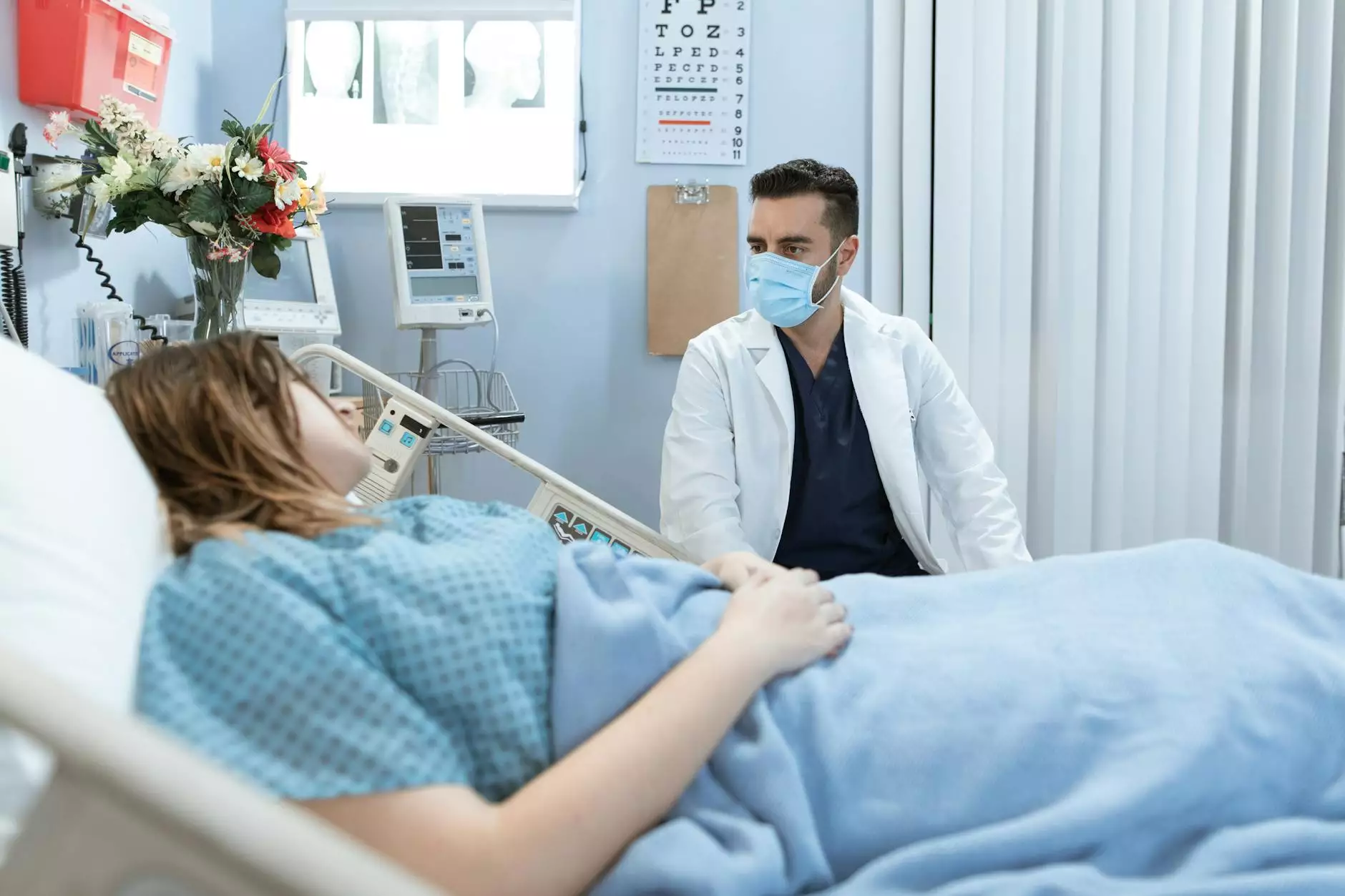Understanding the Role of a **Pulmonary Surgeon** in Today's Healthcare

In the realm of healthcare, the significance of specialized medical professionals cannot be overstated. One of the most critical specialties is that of a pulmonary surgeon. These experts play an essential role in diagnosing and treating disorders related to the lungs and respiratory system. In this comprehensive article, we will delve into the various facets of being a pulmonary surgeon, the conditions they treat, and why choosing the right surgeon is crucial for your health. We invite you to explore the exceptional services provided by Neumark Surgery, your premier destination for pulmonary care.
The Expertise of a Pulmonary Surgeon
A pulmonary surgeon specializes in surgical procedures that address diseases and conditions affecting the lungs, thoracic cavity, and esophagus. Unlike general surgeons, pulmonary surgeons undergo extensive training specifically focused on chest and lung anatomy. Their expertise is often critical in managing complex respiratory conditions, including but not limited to:
- Lung Cancer
- Chronic Obstructive Pulmonary Disease (COPD)
- Pulmonary Fibrosis
- Esophageal Disorders
- Pleural Diseases
What Conditions Do Pulmonary Surgeons Treat?
The breadth of conditions that a pulmonary surgeon can address is vast. Below are some of the most prevalent issues managed by these specialists:
1. Lung Cancer
Lung cancer remains one of the leading causes of cancer-related deaths worldwide. Early diagnosis and intervention are critical for positive outcomes. A pulmonary surgeon may perform surgeries such as lobectomies or pneumonectomies, which involve the removal of part or the entirety of a lung to eliminate cancerous cells.
2. Chronic Obstructive Pulmonary Disease (COPD)
COPD is a chronic inflammatory lung disease that causes obstructed airflow from the lungs. Surgical options may include lung volume reduction surgery, which removes damaged lung tissue, allowing the remaining healthy lung to function more efficiently.
3. Pulmonary Fibrosis
This condition leads to scarring of lung tissue, resulting in progressive difficulty breathing. In severe cases, a pulmonary surgeon may recommend a lung transplant, a procedure that requires extensive evaluation and coordination.
4. Esophageal Disorders
Conditions such as esophageal cancer or severe gastroesophageal reflux disease (GERD) often require surgical intervention. Techniques such as fundoplication can be performed to alleviate the symptoms and prevent further complications.
5. Pleural Diseases
Diseases affecting the pleura, the membranes surrounding the lungs, can lead to conditions like pleural effusion. A pulmonary surgeon may perform procedures such as thoracentesis or pleurodesis to address these issues effectively.
When Should You Consult a Pulmonary Surgeon?
Recognizing when to seek consultation from a pulmonary surgeon can be pivotal for your health. You should consider scheduling an appointment when you experience:
- Persistent cough that lasts more than a few weeks
- Unexplained weight loss, often accompanied by fatigue
- Difficulty breathing or shortness of breath during normal activities
- Chest pain that seems unrelated to any physical injury
- Frequent respiratory infections that don't seem to resolve
Why Choose Neumark Surgery for Your Pulmonary Needs?
At Neumark Surgery, we pride ourselves on providing exemplary care for patients requiring pulmonary surgery. Our team of expert surgeons brings years of experience, state-of-the-art technology, and a patient-centered approach to ensure the best possible outcomes.
1. Cutting-Edge Technology
We utilize the latest advancements in medical technology to enhance surgical precision and improve recovery times. Our facilities are equipped with advanced imaging and surgical tools to support minimally invasive procedures.
2. Comprehensive Patient Care
From the initial consultation to post-operative care, we prioritize clear communication and support throughout your entire treatment journey. Our multidisciplinary team works together to provide a holistic approach to your healthcare needs.
3. Experienced Surgeons
Our pulmonary surgeons are board-certified and have extensive training in managing complex pulmonary conditions. Their expertise ensures that you receive the most effective treatment tailored to your specific health requirements.
Understanding Surgical Procedures Performed by Pulmonary Surgeons
The surgical procedures conducted by pulmonary surgeons can vary greatly based on the condition being treated. Here, we highlight some of the most common surgeries performed:
1. Video-Assisted Thoracoscopic Surgery (VATS)
VATS is a minimally invasive procedure used for diagnosing and treating various lung diseases. It involves making small incisions in the chest wall and utilizing a camera to guide the surgical instruments, resulting in less pain and faster recovery times.
2. Lobectomy
A lobectomy is the surgical removal of a lobe of the lung, commonly used in the treatment of lung cancer. This procedure can significantly enhance a patient's prognosis when performed at an early stage of the disease.
3. Pneumonectomy
This is the complete removal of a lung, often necessitated by severe disease. Patients may face more extended recovery times, but this procedure can save lives when lung cancer or severe infections are involved.
4. Lung Transplantation
Lung transplants are complex procedures performed on patients with end-stage lung disease. A pulmonary surgeon plays a crucial role here, coordinating with various medical specialists to provide comprehensive care.
The Role of Preoperative and Postoperative Care
Proper care before and after surgery is essential for successful outcomes. At Neumark Surgery, we emphasize the importance of:
1. Preoperative Evaluations
Before surgery, patients undergo thorough evaluations, including imaging studies and pulmonary function tests. These assessments help our surgeons devise the best surgical plan tailored to the patient’s unique anatomy and health status.
2. Pain Management
Effective pain management protocols are crucial for comfort and recovery. Our team develops individualized pain management plans to help minimize discomfort while promoting healing.
3. Rehabilitation Programs
After surgery, many patients benefit from pulmonary rehabilitation programs. These programs are designed to improve lung function and overall physical fitness, significantly enhancing quality of life post-surgery.
Conclusion: The Path to Health with a Pulmonary Surgeon
A pulmonary surgeon can be an indispensable ally on the journey to health. Neumark Surgery is committed to providing unparalleled care to our patients, ensuring access to cutting-edge treatments and compassionate support. Whether you're facing a chronic respiratory illness or require surgical intervention for a serious condition, choosing the right surgeon is vital for achieving the best possible outcomes.
For more information on our services or to schedule a consultation, please visit neumarksurgery.com and take the first step towards enhanced lung health today.









